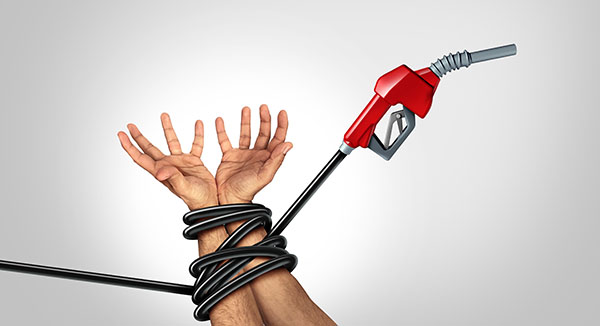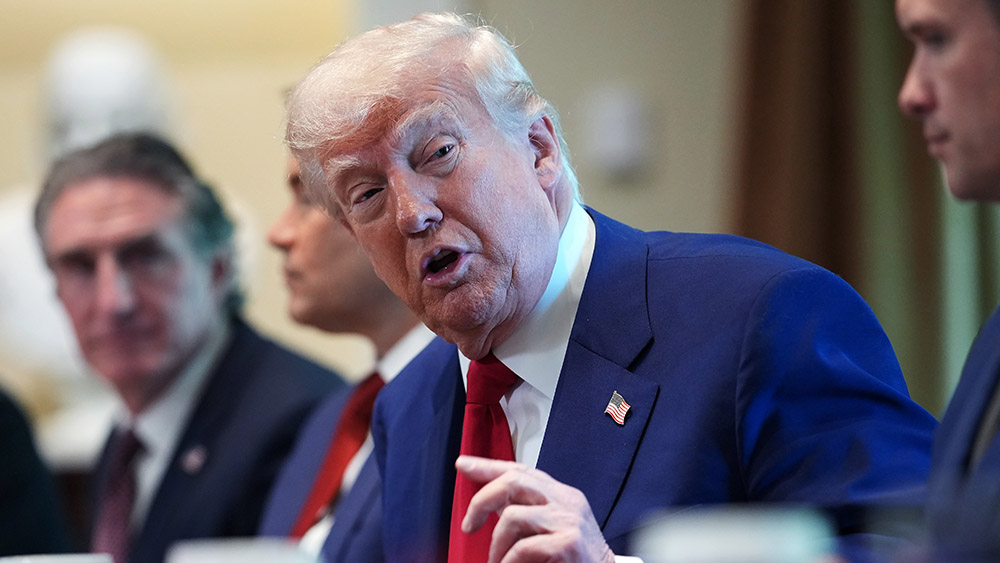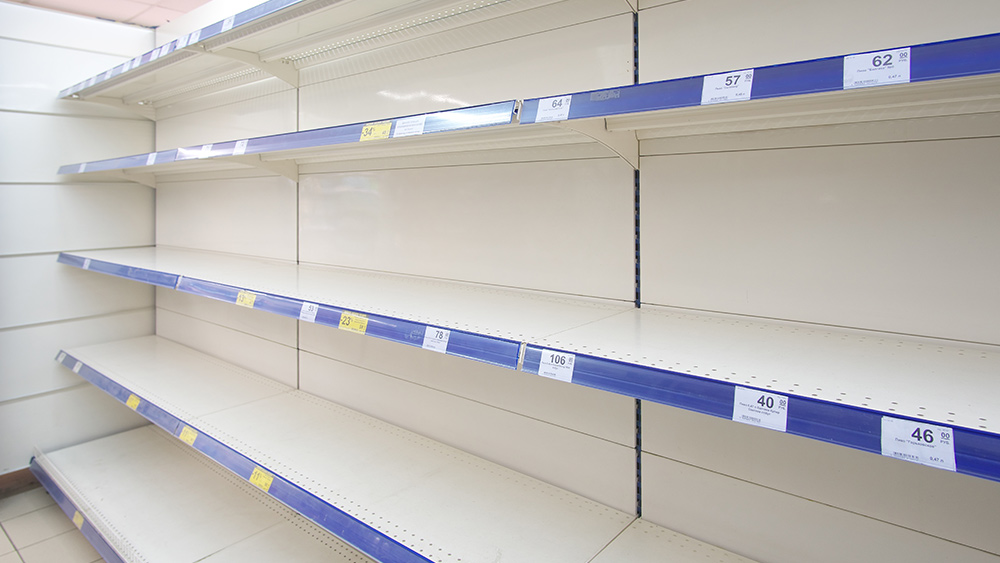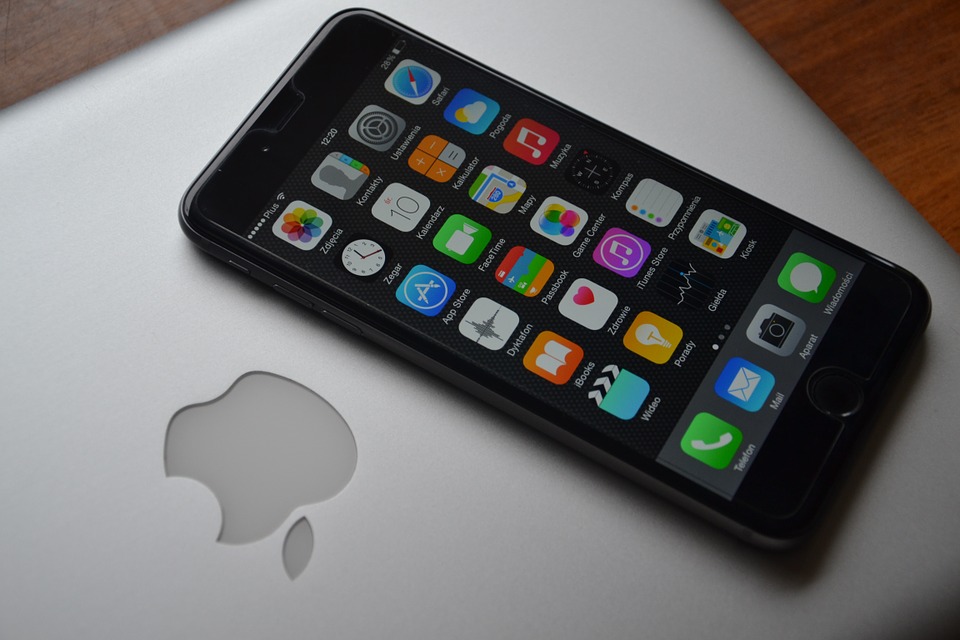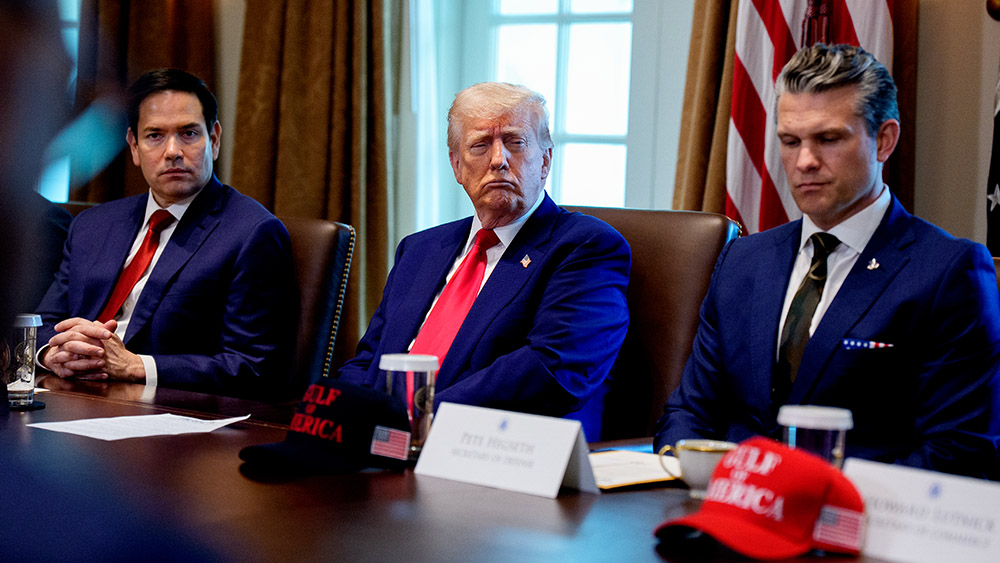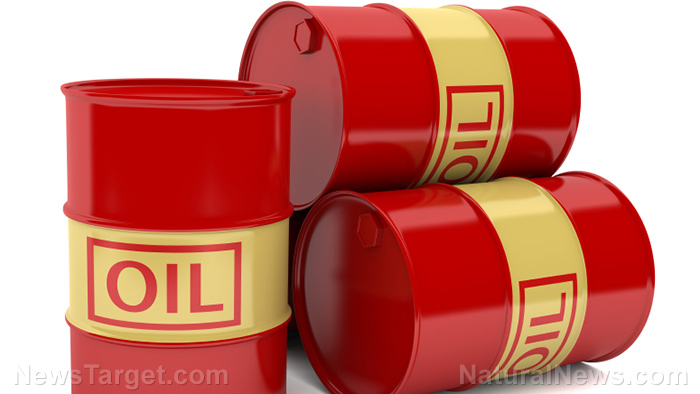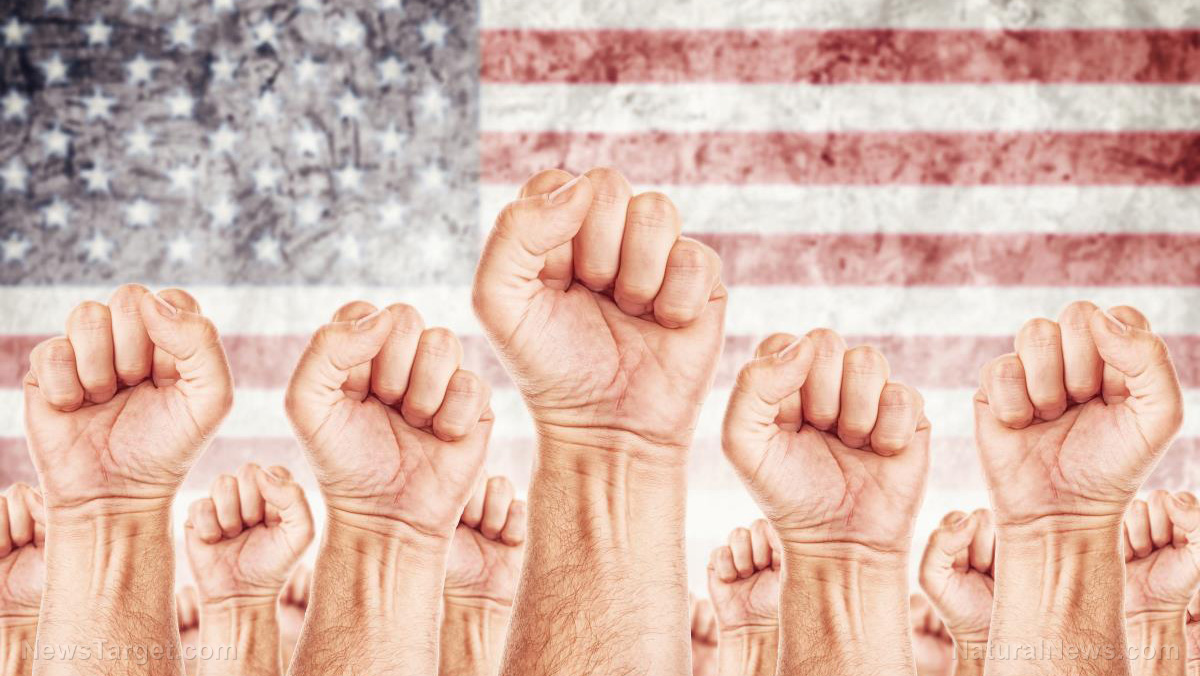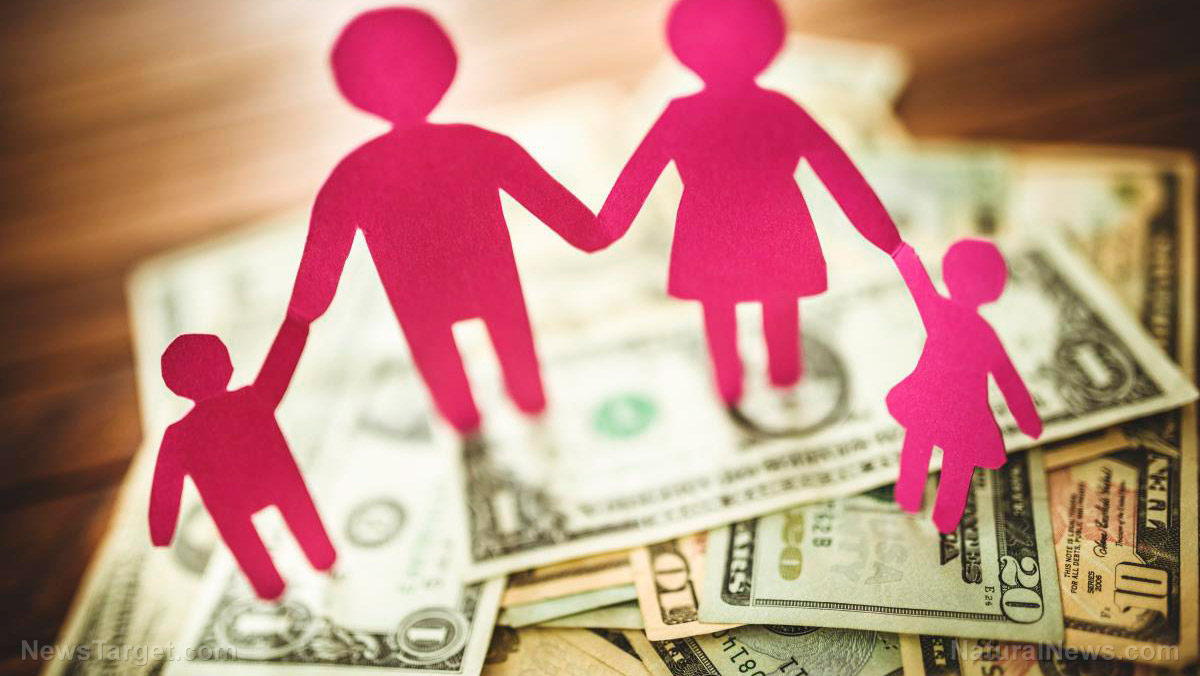China’s tariff evasion tactics could mean CHEAPER goods for American consumers
05/07/2025 / By Willow Tohi
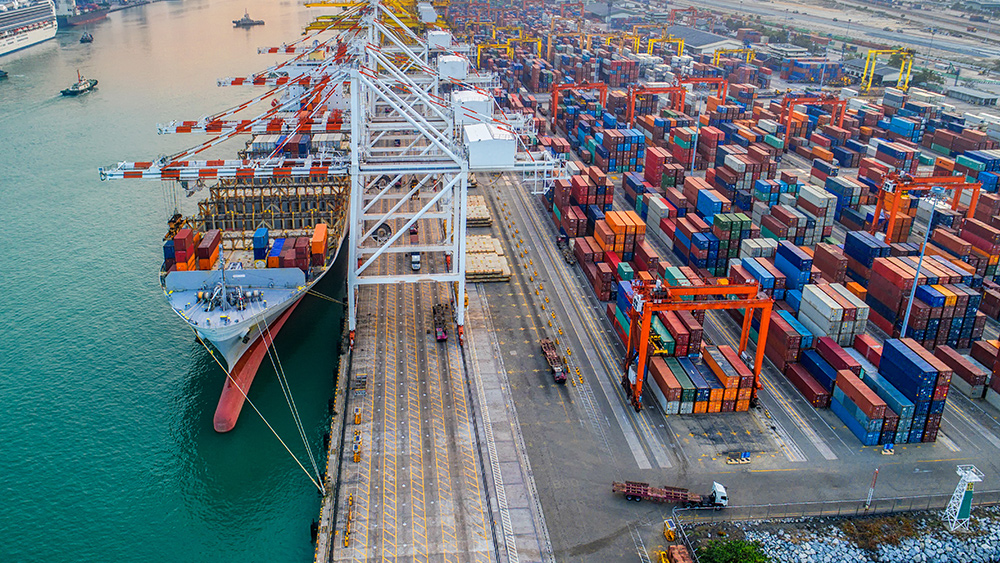
- Chinese exporters evade tariffs by rerouting goods through third countries (e.g., Malaysia, Vietnam, South Korea) and relabeling them to hide their origin, bypassing U.S. duties.
- “Origin washing” exploits trade loopholes, where minor modifications in intermediary countries allow Chinese goods to enter the U.S. with falsified certificates, despite being technically illegal.
- U.S. shoppers may see lower prices as tariffs are circumvented, undermining the intended competitive disadvantage of Chinese goods.
- Third countries are tightening inspections, but enforcement is difficult due to liability shifts (e.g., FOB terms) and sophisticated fraud tactics.
- While evasion offers temporary relief, it could escalate trade tensions, trigger secondary tariffs and destabilize supply chains, with lasting damage to U.S.-China relations.
As U.S. tariffs on Chinese goods reach historic highs, Chinese exporters are finding creative – and sometimes deceptive – ways to bypass them, potentially delivering cost savings to American consumers.
According to reports from the Financial Times (FT) and trade analysts, Chinese firms are increasingly rerouting shipments through third countries like Malaysia, Vietnam, and South Korea. This move obscures their true origin, dodging steep duties imposed by the Trump administration. While regulators scramble to crack down on the practice, experts suggest these workarounds could keep prices lower for U.S. buyers in the short term, even as they raise concerns about fraud and supply chain integrity.
The rise of “origin washing”
The tactic, known as “origin washing,” involves repackaging or relabeling Chinese-made goods in intermediary countries before exporting them to the U.S. with new certificates of origin. Social media platforms in China are reportedly flooded with ads offering these services, with one Malaysian salesperson telling FT: “The U.S. must know of it. It cannot get too crazy, so we are controlling the amount [of orders we take].”
This strategy exploits loopholes in trade rules, where minor modifications in a third country – such as repackaging or light assembly – allow exporters to claim a new origin. While technically illegal if misrepresented, the practice has surged since President Donald Trump reinstated aggressive tariffs – some as high as 245% – citing trade imbalances and national security concerns.
Why this benefits American shoppers
For U.S. consumers, the immediate effect of these evasion tactics could be lower prices. If Chinese goods enter the market without the full weight of tariffs, retailers may pass on the savings rather than absorb the costs.
“In the short term, this undermines the tariffs’ intended effect of making Chinese goods less competitive,” said Henry Gao, a trade policy expert. “But for budget-conscious Americans, it means avoiding the price hikes typically expected in a trade war.”
Historically, tariffs have led to higher consumer costs – a concern that fueled criticism of Trump’s trade policies during his first term. If Chinese exporters successfully circumvent these duties, the inflationary pressure on everyday goods could be muted, at least temporarily.
Crackdowns and consequences
Authorities in Malaysia, Vietnam and South Korea are tightening inspections to prevent their countries from being used as transshipment hubs. South Korea’s customs agency reported $21 million in falsified origin violations in early 2025 alone, with 97% of those goods bound for the United States. Malaysia has imposed stricter rules on its rubber glove industry, requiring exporters to prove local manufacturing.
However, enforcement remains challenging. Chinese sellers often use “free on board” (FOB) terms, transferring liability to buyers once goods leave China. This complicates efforts to hold exporters accountable for mislabeling.
The long-term trade war outlook
While origin washing may offer temporary relief for U.S. consumers, it risks escalating tensions further. Beijing has already retaliated with 125% tariffs on U.S. imports and export controls on critical materials. The Chinese Ministry of Commerce has signaled openness to talks but insists Washington must drop tariffs as a precondition – a nonstarter for the Trump administration.
Analysts warn that if evasion continues unchecked, the U.S. could impose secondary tariffs on intermediary countries, disrupting global supply chains. “The question isn’t just about cheaper goods today,” said a trade consultant quoted by the FT. “It’s about whether the global trading system can withstand this level of distortion.”
For now, American consumers may benefit from China’s tariff evasion strategies, enjoying lower prices on everything from electronics to household goods. But the long-term implications – fraudulent labeling, strained trade relationships and potential supply chain instability – suggest this is a precarious balancing act.
As regulators close loopholes and tariffs tighten, the window for these savings could soon close, leaving both sides to grapple with the fallout of a prolonged trade war. In the end, the real test will be whether these tactics force a renegotiation – or simply deepen the divide between the world’s two largest economies.
Sources for this article include:
Submit a correction >>
Tagged Under:
big government, Bubble, cheaper goods, China, conspiracy, corruption, deception, Donald Trump, global trade, lies, low prices, market crash, money supply, origin washing, products, rigged, risk, supply chain, tariff evasion, tariffs, third countries, trade war
This article may contain statements that reflect the opinion of the author
RECENT NEWS & ARTICLES
COPYRIGHT © 2017 BUBBLE NEWS

